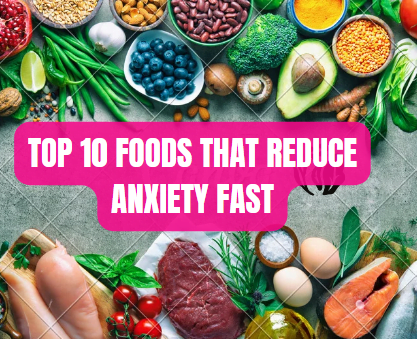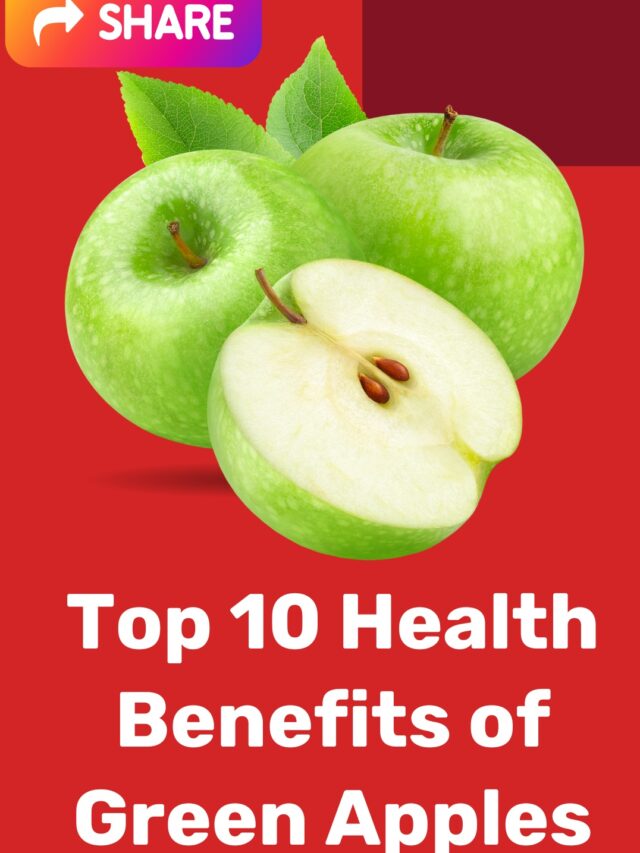

Introduction
In today’s fast-paced world, maintaining good mental health has become crucial. While therapy and medication are commonly used treatments, the role of nutrition in mental well-being is often overlooked. Research suggests that certain foods can have a positive impact on mental health by providing essential nutrients that support brain function and promote emotional well-being. In this article, we will explore the Top 10 foods that reduce anxiety fast and their effects on mental health.
Top 10 foods that reduce anxiety fast
Before delving into the specific foods, it is important to understand the connection between nutrition and mental health. The brain requires a variety of nutrients to function optimally, including vitamins, minerals, antioxidants, and omega-3 fatty acids. Deficiencies in these nutrients can lead to imbalances in brain chemistry, affecting mood, cognition, and overall mental health. A list of top 10 foods that reduce anxiety fast are as follows:
1. Dark Leafy Greens
Dark leafy greens, such as spinach and kale, are nutritional powerhouses that offer a myriad of benefits for mental health. Packed with essential vitamins, minerals, and antioxidants, these greens support brain health and cognitive function. They are particularly rich in folate, a B-vitamin known for its role in neurotransmitter synthesis, which helps regulate mood. Additionally, dark leafy greens contain antioxidants that protect the brain from oxidative stress and inflammation, contributing to long-term cognitive health. Including these greens in your diet can also promote improved memory, focus, and overall mental clarity.
2. Fatty Fish
Fatty fish, including salmon and mackerel, are renowned for their high content of omega-3 fatty acids. These healthy fats play a crucial role in maintaining optimal brain function and have been linked to improved mental health outcomes. Omega-3 fatty acids support the structure and integrity of brain cells, promote communication between neurons, and reduce inflammation in the brain. Regular consumption of fatty fish has been associated with a lower risk of depression, anxiety, and age-related cognitive decline. The omega-3 fatty acids EPA and DHA found in fish are particularly beneficial for brain health. These nutrients are involved in the production of neurotransmitters and help regulate mood and emotions. Including fatty fish in your diet provides a delicious and nutritious way to support your mental well-being.
3. Whole Grains
Whole grains, such as oats and quinoa, offer a wealth of benefits for mental health. They are excellent sources of complex carbohydrates, providing a steady release of glucose, the brain’s primary energy source. This steady supply of energy helps support optimal brain function, including memory, concentration, and mood stability. Whole grains are also rich in B vitamins, including folate, which plays a vital role in neurotransmitter synthesis and regulation. Additionally, their high fiber content promotes healthy digestion and helps regulate blood sugar levels, preventing energy crashes and mood fluctuations. By incorporating whole grains into your diet, you can nourish your brain and support mental well-being.
4. Berries
Berries, such as blueberries and strawberries, are vibrant and delicious fruits that offer numerous benefits for mental health. These colorful gems are packed with antioxidants and flavonoids, which have been shown to protect the brain from oxidative stress and inflammation. The powerful antioxidants in berries help combat free radicals, which can cause damage to brain cells and contribute to cognitive decline. Flavonoids, specifically anthocyanins found in berries, have been linked to improved cognitive function, memory, and focus. Including a variety of berries in your diet can provide a natural and flavorful way to support brain health and promote optimal mental function.
5. Yogurt
Yogurt is a creamy and nutritious food that offers significant benefits for mental health. As a probiotic-rich food, yogurt promotes a healthy gut microbiome. Emerging research suggests a strong link between gut health and mental well-being. The gut-brain connection highlights the importance of maintaining a balanced gut microbiome for optimal brain function. Probiotics in yogurt help foster a diverse and thriving gut microbiota, which can positively impact mood, stress levels, and cognitive function. Consuming yogurt regularly can contribute to a healthy gut-brain axis and support overall mental well-being.
6. Nuts and Seeds
Nuts and seeds, such as almonds and pumpkin seeds, are small but mighty when it comes to their impact on mental health. These nutrient-dense foods are packed with essential vitamins, minerals, healthy fats, and antioxidants. They provide an array of nutrients that support brain health and cognitive function. For example, nuts and seeds are rich in vitamin E, which acts as a potent antioxidant, protecting brain cells from oxidative damage. Additionally, they are excellent sources of omega-3 fatty acids, which are essential for brain health and have been associated with improved mood and reduced risk of mental decline. The combination of nutrients found in nuts and seeds, including fiber, healthy fats, and micronutrients, makes them an excellent choice for promoting mental well-being.
7. Legumes
Legumes, such as beans and lentils, offer a range of benefits for mental health. These plant-based powerhouses are rich in protein, complex carbohydrates, fiber, and important nutrients like folate. Folate plays a vital role in neurotransmitter synthesis, helping to regulate mood and support cognitive function. The combination of protein and carbohydrates in legumes provides a steady release of energy, promoting stable blood sugar levels and preventing mood swings. Additionally, legumes are a great source of magnesium, which is known to support brain health and contribute to a sense of calmness and relaxation. Including legumes in your diet can provide a nutritious and versatile way to nourish your brain and support mental well-being.
8. Fermented Foods
Fermented foods, such as sauerkraut and kimchi, offer unique benefits for mental health due to their rich probiotic content. These foods undergo a fermentation process that promotes the growth of beneficial bacteria. These probiotics support a healthy gut microbiome, which plays a vital role in brain function and mental well-being. Research suggests that the gut microbiome communicates with the brain through the gut-brain axis, influencing mood, behavior, and cognitive processes. By consuming fermented foods, you introduce beneficial bacteria into your gut, promoting a diverse microbiota and fostering optimal gut-brain communication. Incorporating fermented foods into your diet can help support a healthy gut and positively impact mental health.
9. Dark Chocolate
Dark chocolate, particularly in varieties with high cocoa content, is a delectable treat and offers mental health benefits. Dark chocolate contains flavonoids, which are antioxidants that can protect the brain from oxidative stress. These flavonoids have been associated with improved cognitive function and enhanced mood. Dark chocolate also stimulates the production of endorphins, the “feel-good” hormones that promote a sense of well-being and happiness. Additionally, it contains small amounts of caffeine, which can provide a gentle energy boost and increase alertness. When consumed in moderation, dark chocolate can be a delightful and indulgent way to support your mental well-being.
10. Herbal Teas
Herbal teas, such as chamomile and green tea, have long been appreciated for their soothing and calming properties. These teas can have a positive impact on mental health and well-being. Chamomile tea, known for its mild sedative effects, can promote relaxation, reduce anxiety, and improve sleep quality. Green tea contains an amino acid called L-theanine, which has been shown to have calming effects and enhance focus without causing drowsiness. It can also provide a gentle energy boost due to its small caffeine content. Incorporating herbal teas into your daily routine offers a comforting and refreshing way to support mental relaxation, stress reduction, and overall well-being.
In addition to the above-mentioned top 10 foods that reduce anxiety fast, a few other foods are included among the best foods for mental health:
1. Citrus Fruits
Citrus fruits, such as oranges and grapefruits, are not only refreshing but also contribute to mental well-being. These fruits are rich in vitamin C, a powerful antioxidant that helps protect brain cells from oxidative stress. Vitamin C also supports the production of neurotransmitters like serotonin, which plays a crucial role in regulating mood. Including citrus fruits in your diet can provide a zesty and nutritious way to support mental health and overall vitality.
2. Turmeric
Turmeric, a vibrant yellow spice commonly used in curries, has gained attention for its potential mental health benefits. It contains an active compound called curcumin, which has been studied for its anti-inflammatory and antioxidant properties. Curcumin may help reduce inflammation in the brain and promote the growth of new brain cells, which can contribute to enhanced cognitive function and mood regulation. Incorporating turmeric into your meals or enjoying a warm cup of turmeric tea can be a flavorful way to support brain health.
3. Avocado
Avocado, known for its creamy texture and rich flavor, offers several benefits for mental well-being. It is a great source of healthy fats, including monounsaturated fats, which support brain health and contribute to a stable mood. Avocado is also rich in vitamin E, an antioxidant that helps protect brain cells from oxidative damage. Furthermore, it contains folate, which plays a role in neurotransmitter synthesis and supports cognitive function. Adding avocado to your salads, sandwiches, or smoothies can provide a delicious and nutritious boost to your mental well-being.
4. Eggs
Eggs are incredibly versatile and nutrient-dense, making them a valuable addition to a mental health-focused diet. They are an excellent source of high-quality protein, essential for producing neurotransmitters that regulate mood and cognitive function. Eggs also contain important nutrients like choline and vitamin D, which support brain health and overall mental well-being. The combination of protein, healthy fats, and essential nutrients in eggs makes them a satisfying and nourishing food choice for optimal brain function.
5. Pumpkin
Pumpkin, a seasonal favorite, offers more than just a delightful flavor. It is rich in nutrients like vitamin C, vitamin E, and antioxidants, which help protect the brain from oxidative stress and inflammation. Pumpkin is also a good source of fiber, which promotes a healthy gut microbiome and supports overall well-being. Whether roasted, pureed, or incorporated into baked goods, pumpkin can be a delicious and nutritious addition to your mental health-oriented diet.
Conclusion
Incorporating the top 10 foods that reduce anxiety fast into your diet can have a profound impact on your well-being. From dark leafy greens to fermented foods, each food provides unique nutrients that support brain function and promote emotional balance. Remember to prioritize nutrition as part of your overall mental health care routine. By nourishing your body with these wholesome foods, you can take significant steps towards improving your mental well-being.
Frequently Asked Questions
Can certain foods help reduce anxiety fast?
Yes, certain foods can improve mental health by providing essential nutrients that support brain function and promote emotional well-being.
How do dark leafy greens benefit mental health?
Dark leafy greens are rich in folate, a B-vitamin essential for neurotransmitter production. They also contain antioxidants that protect the brain from oxidative stress.
What is the role of fatty fish in maintaining mental well-being?
Fatty fish is a rich source of omega-3 fatty acids, which reduce inflammation in the brain, support brain cell growth, and enhance cognitive function.
How do whole grains contribute to mental health?
Whole grains provide a steady release of glucose, the brain’s main source of energy. This helps improve focus, concentration, and mood stability.
Why are berries beneficial for mental health?
Berries are rich in antioxidants and flavonoids, which improve cognitive function and delay brain aging. They also have anti-inflammatory properties.
What role does yogurt play in supporting mental health?
Yogurt is a probiotic-rich food that promotes a healthy gut microbiome. Emerging research suggests a strong link between the gut and mental health.
How can nuts and seeds impact mental well-being?
Nuts and seeds are packed with vitamin E and omega-3 fatty acids, which protect the brain and improve cognitive function.
What are the mental health benefits of consuming legumes?
Legumes provide essential nutrients, including folate, that support neurotransmitter synthesis and mood regulation. They also provide a steady source of energy for the brain.
Why are fermented foods good for mental health?
Fermented foods promote a healthy gut microbiome, which plays a crucial role in mental health. A balanced gut microbiome is associated with improved mood and reduced anxiety.
How does dark chocolate affect mental well-being?
Dark chocolate contains flavonoids, caffeine, and antioxidants that stimulate the production of endorphins, improving mood and reducing stress.

